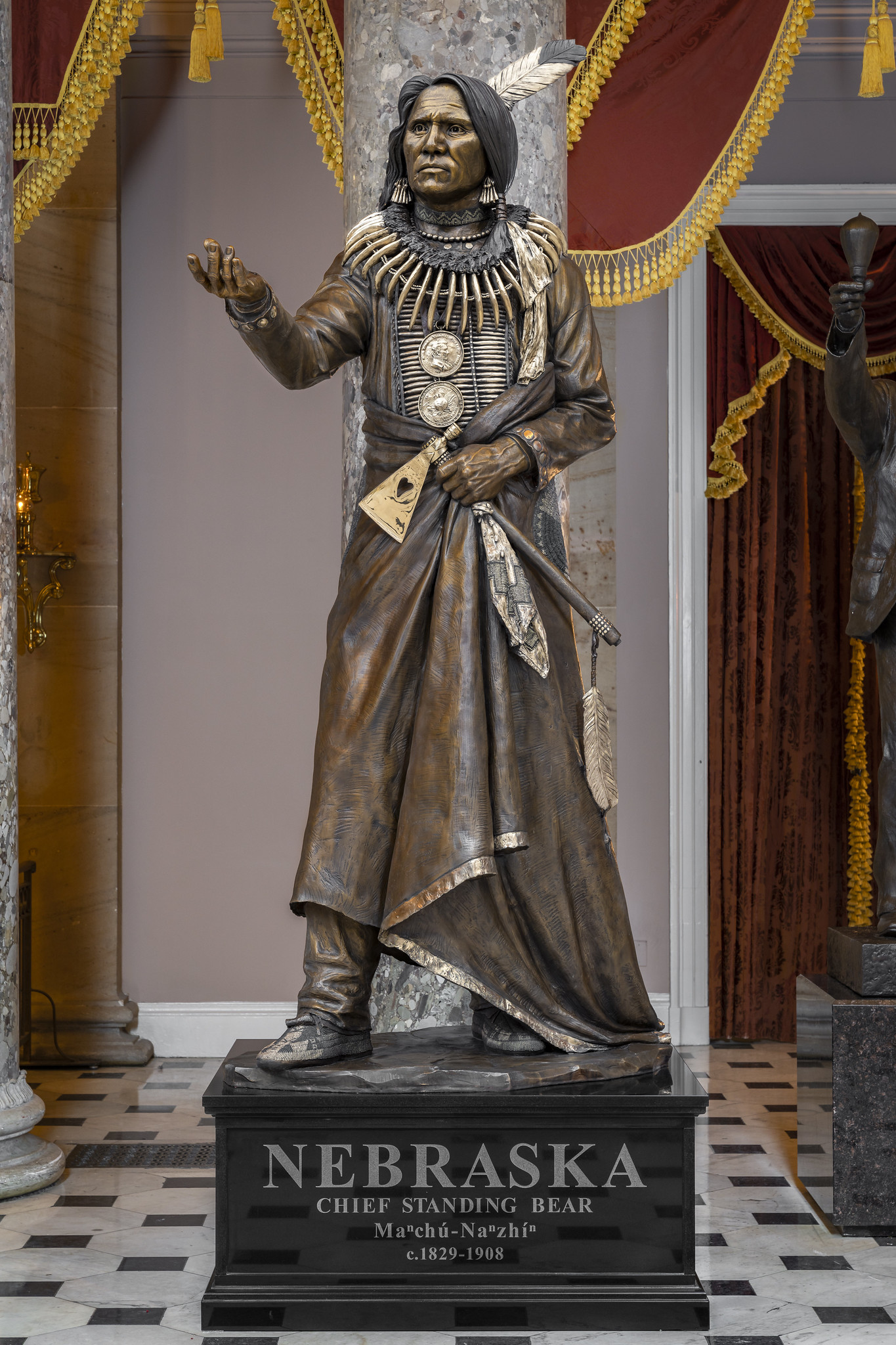Standing Bear (1829?-1908) was a Native American civil rights leader of the Ponca people. Standing Bear testified in United States Federal Court in a landmark civil rights case. The court ruled in the case that Native Americans are people and therefore have rights protected under the U.S. Constitution .

Standing Bear was born in what is now Nebraska. His exact birthdate is not known. At a young age, he became a leader among the Ponca community. In the late 1850’s, the U.S. government forced the Ponca to give up their land, except for a small holding near the Niobrara River, in northern Nebraska.
In 1868, the U.S. government signed the Fort Laramie Treaty with the Lakota Sioux people. A flaw in the treaty assigned Ponca territory to the Sioux. The Sioux raided the Ponca repeatedly, for “trespassing” on Sioux land. Finally, the U.S. government ordered the Ponca to move to Indian Territory in what is now Oklahoma. The government did not provide enough food and resources for the journey and resettlement. Many Ponca died, including Standing Bear’s son Bear Shield. Before his death, Bear Shield asked to be buried with his ancestors in present-day Nebraska.
In 1879, Standing Bear and other Ponca journeyed to their ancestral homeland to bury his son. In Omaha, Nebraska, they were arrested by the U.S. General George Crook for leaving Indian Territory. Crook, however, was sympathetic to Standing Bear’s cause and shared his story in the press. Two lawyers took up Standing Bear’s case free of charge.
The lawyer for the United States argued that, because Standing Bear was a Native American, he was neither a person nor a citizen of the United States. Therefore, he could not claim rights under the Constitution. Standing Bear was allowed to speak at the trial. He said, through an interpreter, “My hand is not the color of yours, but if I pierce it, I shall feel pain. If you pierce your hand, you also feel pain. The blood that will flow from mine will be the same color as yours. The same god made us both. I am a man.” The judge ordered Standing Bear and his fellow Ponca to be freed.
Standing Bear went on to travel the United States to speak about Native American rights. He died in 1908. In 2019, a statue of Standing Bear was installed to represent Nebraska in Statuary Hall at the U.S. Capitol in Washington, D.C.
